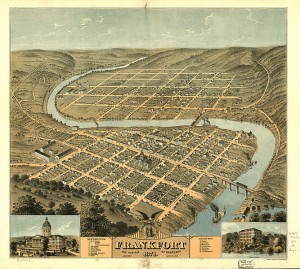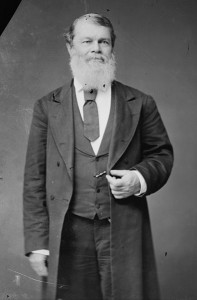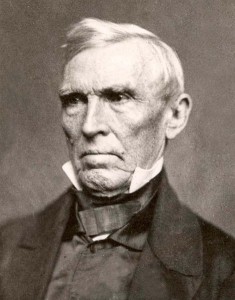On April 19, 1861 southern-sympathizing citizens in Baltimore attacked Union troops marching through their city on the way to Washington, D.C. Three days later something like a reverse scenario is reported to have played out in Kentucky, another border state.
From The New-York Times April 24, 1861:
CINCINNATI, Tuesday, April 23.
A Company of Secessionists, numbering 113 men, left Cynthiana, Ky., yesterday, to join the Southern Confederate army. When the train arrived at Frankfort, Ky., they were ordered to show their flag, which they did by displaying a secession flag from a window of the cars. Several stones were thrown at it, when the Lieutenant of the Company fired into the crowd. Immediately the cars were attacked by the citizens, and boulders and paving stones rained upon them promiscuously.
They finally got off with but little personal injury. Great excitement prevailed during the remainder of the day, and threats were made to tear up the railroad track. The citizens declare that no more trains bearing secession troops shall pass through that place.
There is a movement on foot, and will probably be adopted in a day or two, between the civil and military authorities of Louisville, Jeffersonville and New-Albany, to prevent any invasion by hostile troops from the North or South, so long as Kentucky preserves her present status.
Kentucky’s Governor Beriah Magoffin responded passionately to President Lincoln’s request for troops after the surrender of Fort Sumter:
I will send not a man nor a dollar for the wicked purpose of subduing my sister Southern States.
In editorializing against Border State Neutrality on April 26, 1861 The New-York Times mentions part of a speech John Jordan Crittenden made on Kentucky neutrality:
“That he saw no safety to the State, but in a petition of neutrality — saying to both that, while she should hold herself in readiness at all times to act as a mediator between the parties, in order to restore peace, neither should cross her limits for hostile purposes, and that she was ready to defend herself against all who might attack her, or endeavor to thwart her purposes of peace.”



